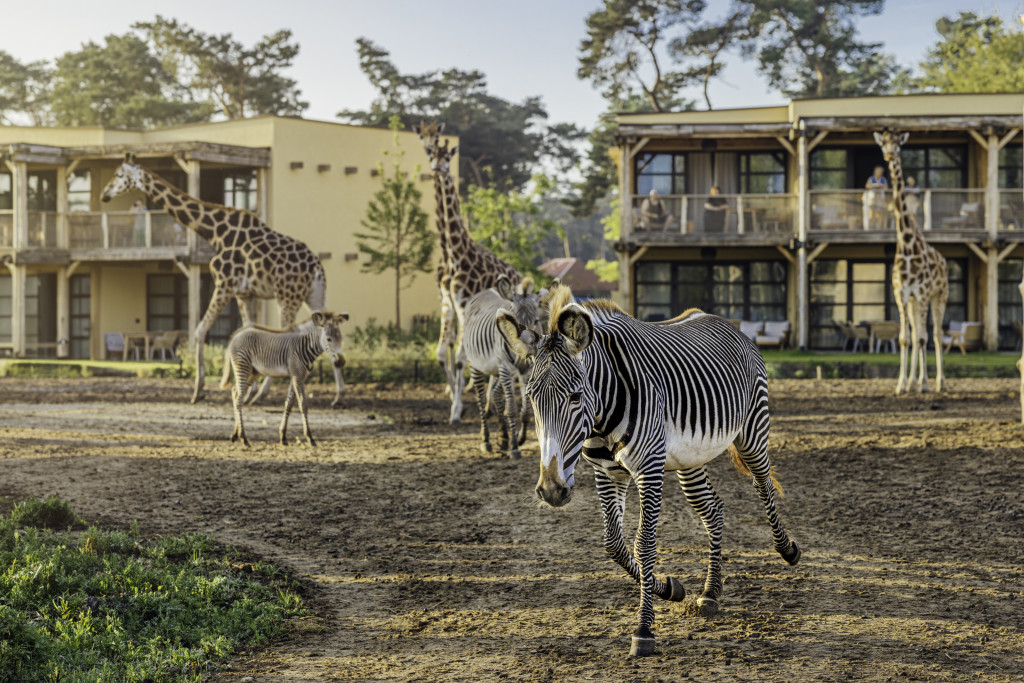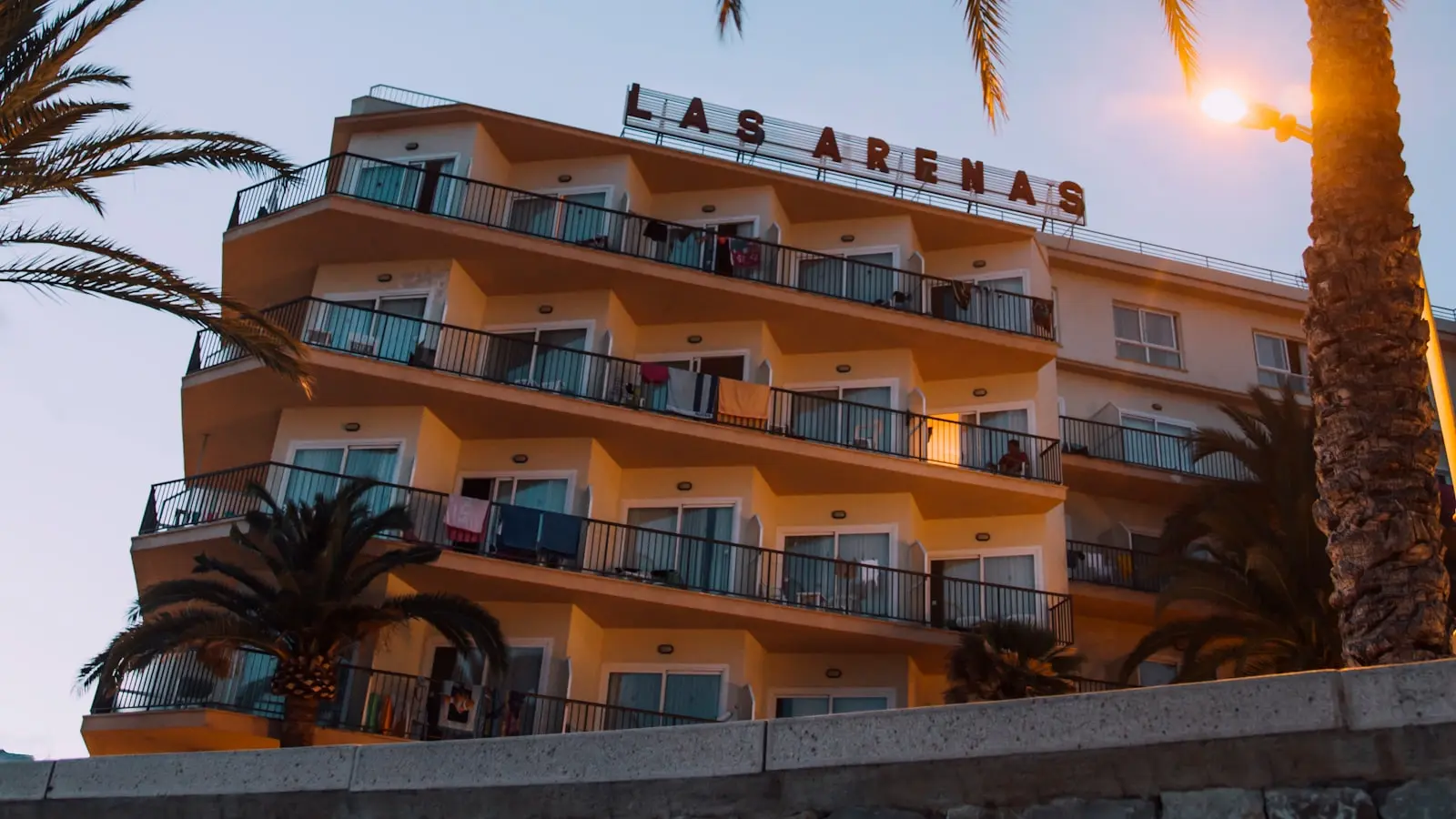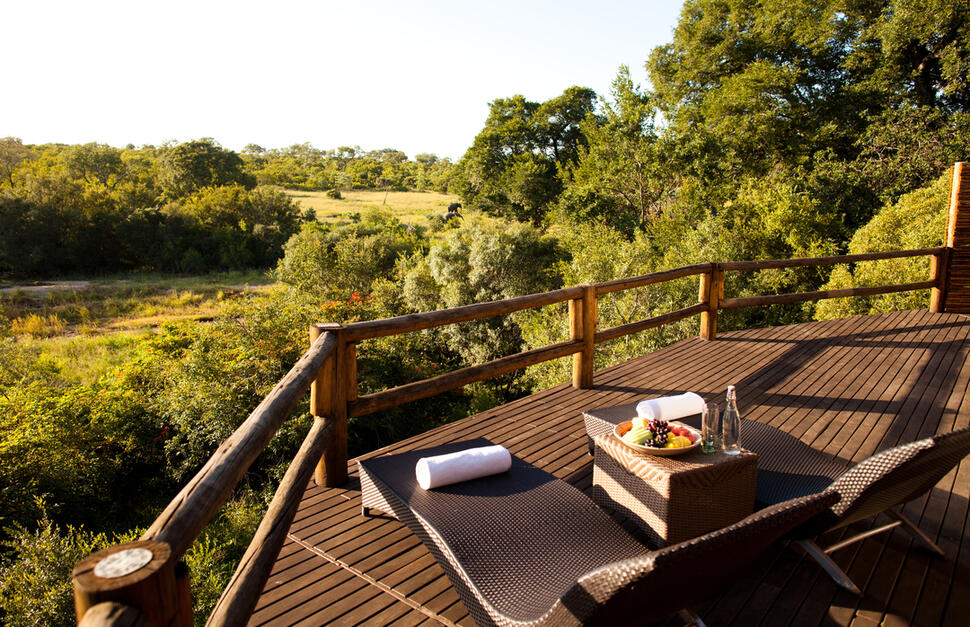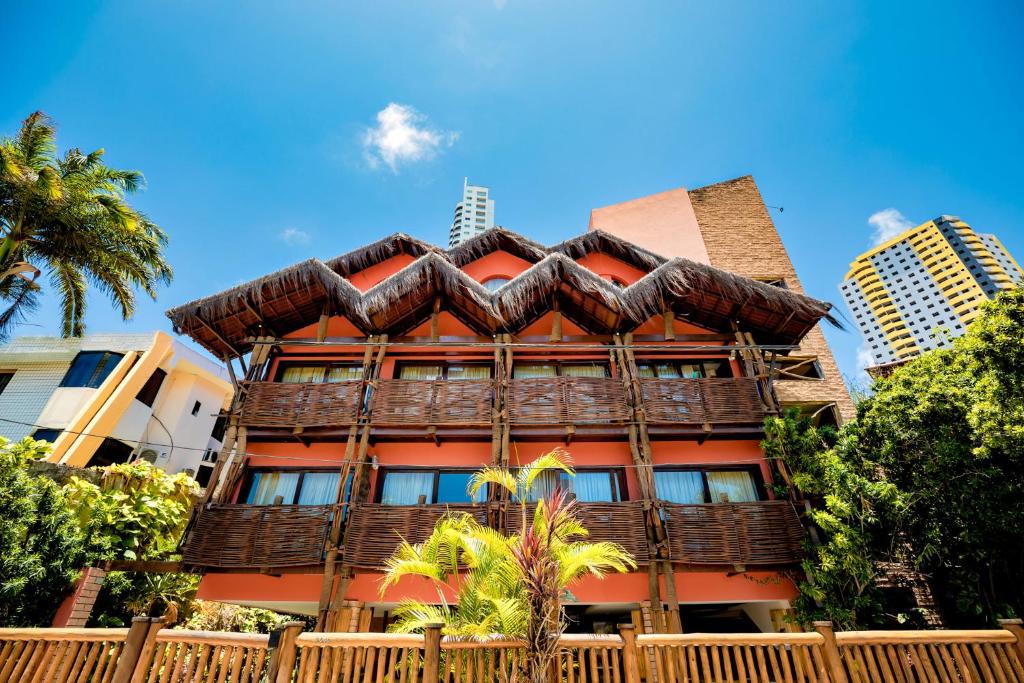How To Make A Safari Hotel Website - Templates For Create A Stunning Site
When it comes to creating a safari hotel website, the stakes are as high as the majestic giraffes roaming the African savannah. A website for a safari hotel isn't just a digital brochure; it's the online embodiment of the adventure that awaits. The importance of a visually appealing and functional website cannot be overstated. It's the first impression potential guests will have of your hotel, and it can make or break their decision to book a stay. Discover tips on how to make a safari hotel website that captivates & converts visitors into guests!
A safari hotel website should transport visitors to the wild from the comfort of their homes, enticing them with vivid imagery, engaging content, and a seamless user experience. In this ultimate guide, we will cover the essential steps to create a website that not only looks stunning but also ranks well on search engines, provides a user-friendly experience, and ultimately converts visitors into guests.
From choosing the right template and design elements to highlighting your lodge's amenities and activities, we'll delve into the details of what makes a safari hotel website successful. We'll also discuss how to enhance the user experience with interactive features and optimize your site for both search engines and mobile devices. By the end of this guide, you'll have a clear roadmap to crafting a website that stands out in the competitive world of safari hotels.
Choosing The Right Design Elements
When embarking on the journey of creating a safari hotel website, the visual appeal and functionality of your site are paramount. The template you choose sets the stage for your online presence and can make or break the user's first impression. Here's how to select the right template and design elements to ensure your website stands out.
Incorporating Branding With Appropriate Colors And Fonts
Your website is an extension of your safari hotel's brand, and as such, it should reflect the unique identity of your establishment. Select colors that are not only visually appealing but also represent the tones and textures of the safari landscape. Earthy tones like greens, browns, and tans can evoke a sense of nature and adventure.
When it comes to fonts, choose styles that are easy to read and professional. Avoid overly decorative fonts that might detract from the clarity of your content. The right font will convey a sense of elegance and sophistication without compromising on legibility.
Showcasing Stunning Images Of The Natural Surroundings And Wildlife
A picture is worth a thousand words, and in the case of a safari hotel website, it could be worth a thousand bookings. High-quality images of the surrounding landscape, local wildlife, and the luxurious accommodations your lodge offers are essential. These images should be prominently displayed on your homepage and throughout your site to engage visitors and give them a glimpse of what they can expect.
Consider hiring a professional photographer to capture the beauty of your location, or if you have the skills, take the photos yourself. Remember to optimize these images for the web to ensure they load quickly without losing their visual impact.
Image Gallery Tips:
- Use high-resolution images for a crisp, clear display.
- Include a variety of shots: landscapes, wildlife, rooms, and amenities.
- Implement a responsive gallery that looks great on all devices.
- Add descriptive alt text to each image for SEO and accessibility.
By carefully selecting the right template and design elements, you can create a stunning safari hotel website that not only captivates potential guests but also provides a seamless user experience. Remember, your website is often the first point of contact between your hotel and your guests, so make it count.
Highlighting Lodge Amenities And Activities
When creating a Safari Hotel Website, it's crucial to effectively showcase the unique amenities and activities that your lodge offers. This is the part of your website that will capture the imagination of potential guests and entice them to book a stay. Here's how to highlight your lodge's amenities and activities in a way that's both informative and visually appealing.
Describing Accommodations And Unique Features
Your accommodations are more than just a place to sleep; they are an integral part of the safari experience. To convey this, start by providing a detailed description of the different types of rooms or tents available. Use bullet points for clarity:
- Luxury Tents: Spacious canvas tents with en-suite bathrooms and private decks.
- Family Suites: Two-bedroom suites with a living area, perfect for families or groups.
- Honeymoon Hideaways: Secluded retreats with romantic toucheslike outdoor showers or plunge pools.
Don't forget to mention any unique features that set your lodge apart. This could be anything from a treehouse room offering panoramic views of the savannah to an eco-friendly design that blends seamlessly with the environment.
Promoting Dining Experiences And Local Cuisine
The dining experience is a significant aspect of any hotel stay, and it's even more so at a safari lodge where guests can enjoy meals with a view of the wilderness. Highlight your on-site restaurant or dining options, emphasizing:
- Local Cuisine: Introduce guests to the flavors of the region with dishes made from locally sourced ingredients.
- Al Fresco Dining: Describe the experience of eating under the stars or overlooking a watering hole.
- Special Dietary Accommodations: Assure guests that their dietary needs can be met, whether they require vegetarian, vegan, gluten-free, or other specific meal options.
Use high-quality images to accompany your descriptions, as these will help potential guests visualize themselves enjoying the meals you offer.
Enhancing User Experience With Interactive Features
Creating a safari hotel website that stands out requires more than just stunning visuals and informative content. To truly captivate and engage potential guests, your website must offer an interactive user experience that is both intuitive and memorable. Interactive features not only make your website more enjoyable to navigate but also provide practical tools to help visitors plan their safari adventure with ease.
Integrating Maps And Booking Systems
One of the most critical interactive elements to include on your safari hotel website is an integrated map. Maps serve a dual purpose: they help guests understand the location of your hotel in relation to nearby attractions and airports, and they can also highlight the various safari routes or wildlife viewing areas that your hotel offers.
- Interactive Maps: Use interactive maps that allow users to zoom in and out and view different aspects of the region. You can even add markers for special points of interest, such as watering holes where animals are frequently spotted or the starting points for guided tours.
- Online Booking System: A seamless online booking system is essential for converting website visitors into guests. Ensure that your booking interface is easy to use, with clear options for room types, dates, and safari packages. Real-time availability and secure payment options will increase user trust and encourage direct bookings.
Providing Detailed Information On Wildlife Viewing Spots
For many travelers, the highlight of a safari hotel experience is the wildlife. Your website should provide detailed information on the types of animals that can be seen, the best times for viewing, and the conservation efforts your hotel supports.
- Wildlife Spotting Guides: Create interactive guides or checklists that guests can use to learn about the wildlife in the area. Include high-quality photos and interesting facts about each species to educate and excite your visitors.
- Conservation Information: If your hotel is involved in wildlife conservation, make this a prominent feature of your website. Interactive timelines, infographics, or videos can illustrate the impact of conservation efforts and how guests can contribute.
Highlighting Popular Safari Packages And Add-Ons
Your safari hotel likely offers a range of packages and add-ons that cater to different interests and budgets. Highlighting these options on your website can help guests personalize their experience and make the most of their stay.
- Package Overviews: Use visually appealing layouts to summarize each safari package, including what's included, the duration, and any special features. Interactive elements like sliders or tabs can make it easy for users to compare options.
- Add-On Features: Offer guests the ability to customize their stay with add-ons such as guided walks, night drives, or cultural tours. Interactive forms or booking add-ons can allow guests to tailor their experience directly on your website.
By incorporating these interactive features into your safari hotel website, you not only enhance the user experience but also provide valuable tools that assist guests in planning their perfect safari adventure. A website that is both informative and engaging will leave a lasting impression and can significantly increase the likelihood of direct bookings. Remember, the goal is to create a digital space that mirrors the excitement and wonder of a real-life safari, encouraging visitors to take the next step and book their stay with you.
Optimizing For Search Engines And Mobile Devices
Creating a stunning Safari Hotel website is not just about aesthetics; it's also about ensuring that potential guests can find your site easily when they search online. Search Engine Optimization(SEO) is a crucial aspect of website development that can't be overlooked. Additionally, with the increasing use of smartphones for internet browsing, having a mobile-responsive website is essential.
Implementing SEO Best Practices
To ensure your Safari Hotel website ranks well on search engines like Google, you need to implement SEO best practices. Here are some key strategies:
- Keyword Optimization: Use relevant keywords throughout your website's content, especially in titles, headings, and meta descriptions. For instance, phrases like "luxury safari hotel" or "safari lodge experience" can help attract the right audience.
- Quality Content: Provide valuable and informative content that addresses the needs and questions of your audience. This includes detailed descriptions of your lodge, amenities, and safari tours.
- Page Load Speed: Optimize your website's loading speed by compressing images and using efficient coding. Search engines favor websites that load quickly.
- Internal Linking: Create links between the pages of your website to help search engines understand the structure of your site and index it more effectively.
- Backlinks: Encourage reputable websites to link back to your site. This can improve your site's authority and ranking.
- Local SEO: If your Safari Hotel caters to a specific region, make sure to optimize for local SEO by including the location in your keywords and registering with Google My Business.
Ensuring Mobile Responsiveness For On-the-Go Access
With more people using their mobile devices to plan travel, your Safari Hotel website must be mobile-friendly. Here's how to ensure mobile responsiveness:
- Responsive Design: Choose a website design that automatically adjusts to fit the screen size of any device, whether it's a desktop, tablet, or smartphone.
- Simplified Navigation: Mobile users should be able to navigate your website with ease. Simplify menus and ensure buttons are large enough to be tapped with a finger.
- Touchscreen Compatibility: Ensure all interactive features work well on touchscreens, such as sliders, booking forms, and maps.
Encouraging Direct Bookings Through A User-Friendly Interface
To convert website visitors into guests, your Safari Hotel website should encourage direct bookings. A user-friendly interface can make all the difference:
- Clear Call-to-Action (CTA): Use prominent and clear CTAs that invite users to book a stay, inquire about a safari, or view special offers.
- Simple Booking Process: The booking process should be straightforward and require as few steps as possible. Avoid complicated forms and unnecessary information requests.
- Secure Payment System: Assure visitors that their payment information is safe by using secure payment gateways and displaying security badges.
How To Search For The Best HTML Template For Your Safari Website
- ThemeForest:Search for templates using keywords like "animal," "wildlife," or "conservation" on ThemeForest to find a variety of options for HTML templates.
- TemplateMonster:TemplateMonster offers a diverse range of templates. Browse their collection for themes related to animals, wildlife, or conservation.
- Wix:Wix provides customizable templates for websites, including those tailored for animal-related content. You can find templates suitable for pet care, wildlife, or environmental causes.
- HTML5 UP:HTML5 UP has free, responsive HTML templates that may be adapted for animal-focused websites. Explore their collection and look for templates with nature-oriented designs.
- Colorlib:Colorlib offers both free and premium HTML templates. Check their collection for templates that align with the theme of your animal or wildlife website.
How To Make A Safari Hotel Website - FAQs
Are Safari Lodges Profitable?
The profitability of safari lodges can vary depending on factors such as location, management, and the overall demand for safari experiences. Successful lodges that offer high-quality services, unique wildlife experiences, and effective marketing strategies tend to be more profitable.
Are Safari Lodges Ethical?
The ethical considerations of safari lodges depend on the practices and principles followed by each establishment. Ethical lodges prioritize wildlife conservation, community engagement, and sustainable tourism practices. It's essential to research and choose lodges that adhere to ethical standards and contribute positively to local communities and wildlife conservation efforts.
Why Are Safaris So Expensive?
Safaris can be expensive due to various factors. The costs often include park fees, professional guides, luxury accommodations, transportation, and conservation contributions. Additionally, the exclusivity and remote locations of many safari destinations contribute to higher prices. Investing in well-trained guides, wildlife conservation efforts, and maintaining lodges in pristine natural environments also contribute to the overall expenses associated with safari experiences. If you're planning a safari, consider exploring accommodations in the stunning Ngorongoro ConservationArea, such as the lodges and campsites available through Tanzania Wildlife Safaris.
Conclusion
By focusing on SEO and mobile responsiveness, you can significantly increase the visibility and accessibility of your Safari Hotel website. This not only enhances the user experience but also drives more traffic and bookings. Remember, the goal is to create a seamless journey from the moment a potential guest discovers your website to the moment they book their unforgettable safari adventure.



